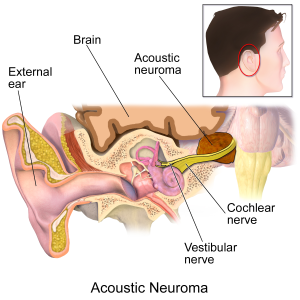Tinnitus Occurs Frequently Among Children
Stephen G. Katz, LCSW-R, a leading Manhattan tinnitus treatment psychotherapist, frequently treats children who are experiencing tinnitus, a condition that results in a ringing or roaring noise in the ears. The incidence of tinnitus is the same in childhood as in adults. As many as a third of children experience tinnitus at some time, and one in twelve children may have clinically significant problems that interfere with concentration or sleep.
If Your Child Has Tinnitus
If your child complains of ringing, buzzing, or roaring sounds in the ear, the first step is often an appointment with the family doctor or pediatrician. When the disorder is persistent, a specialist in treatment of ear diseases should evaluate the child. Treatment often requires the help of a specially trained tinnitus treatment psychotherapist like Stephen G. Katz, LCSW-R. Stephen G. Katz, LCSW-R can assist your child with management of tinnitus using effective psychotherapy for tinnitus treatment.
What Are The Causes of Tinnitus in Children?
The causes of tinnitus in children are the same as the causes of tinnitus in adults. Damage to the ear can result in interruption of sound signals to the brain, and the brain may compensate by generating signals that result in the sensation of ringing or roaring in the ear.
Hearing loss in children is a common cause of tinnitus. Deaf children are frequently troubled with tinnitus, and intervention by a specialist in treatment of ENT disorders will help your child minimize the effects of this disorder on activities like schoolwork or sleep. Children who acquire hearing loss after birth are at greater risk of developing tinnitus than children who are born deaf.
Ear infections and sinus infections can result in hearing loss and tinnitus. A child with persistent ear or sinus infections should visit an ENT doctor to determine the best course of treatment. Some children may have tinnitus as a result of ear discharge caused by an infection.
Earwax can build up and result in hearing loss and tinnitus. It’s important for an ENT doctor to evaluate your child so that any potentially treatable conditions can be addressed.
Any damage to the ear can result in tinnitus, including damage from infection, trauma, or drugs, including certain classes of antibiotics and aspirin or drugs like ibuprofen (NSAIDs).
Because tinnitus can also be the result of a brain tumor or an aneurysm, it is essential to have your child diagnosed by an ENT doctor. Treatment of underlying causes can be helpful.
Second hand smoke and exposure to loud noises have both been implicated in development of tinnitus. Stephen G. Katz, LCSW-R will discuss your child’s health history with you to help determine the cause of the tinnitus.
Treatment For Your Child’s Tinnitus
There is not one specific treatment for tinnitus, and it may be a long-term condition. Because tinnitus can result in difficulties with sleep and daytime activities, it can lead to frustration and even behavioral problems in children. Stephen G. Katz, LCSW-R is an experienced tinnitus treatment psychotherapist in Manhattan, and can help you determine how to minimize the psychological distress your child may be experiencing as a result of tinnitus.
Helping your child develop adaptive responses can sometimes significantly reduce tinnitus in children. Because children have growing brains, this type of treatment can result in improvement over time. If your child has a hearing impairment, a hearing aid can take away the focus on internal noise, by allowing your child to hear sounds that they may not normally be able to hear. Stephen G. Katz, LCSW-R sometimes suggests some type of sound therapy, which may include a white noise machine to distract the child from the tinnitus. If your child is having difficulty sleeping, Stephen G. Katz, LCSW-R can advise you on the best strategies to help control this problem.
Stephen G. Katz, LCSW-R Treats Young Patients With Tinnitus
At our clinic, we often see young patients affected by tinnitus. Stephen G. Katz, LCSW-R has experience in diagnosis and treatment of this condition. If you child is distracted and distressed by tinnitus, call Stephen G. Katz, LCSW-R today for a consultation. Call 646-213-2321.


